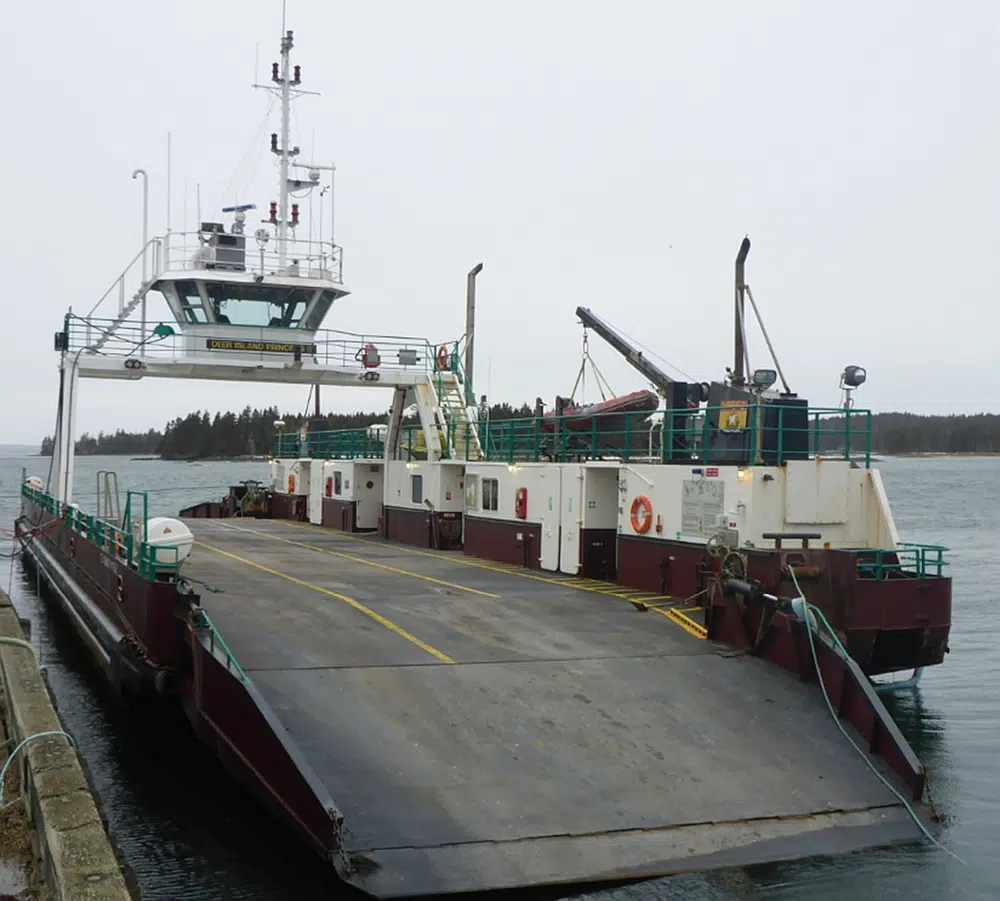
Deer Island Princess II (Source: TSB)
Safety management deficiencies caused one of the Deer Island ferries to make bottom contact in 2018.
That is according to a Transportation Safety Board (TSB) investigation report into the incident released last week.
According to the report, the Deer Island Princess II was travelling from Deer Island to L’Etete on Feb. 2, 2018, when it made bottom contact, knocking off one of the thrusters.
Crew members turned around and were returning to Deer Island when the vessel made bottom contact again and the remaining thruster came off.
Investigators said lower-than-predicted tide levels combined with local topography and a persistent northwesterly wind led to “significantly lower” water levels than expected.
“Also, the master was not aware of the actual height of the tide, and had no means of determining water depth since the vessel was not equipped with a depth sounder and the tide boards at Butler Point Wharf and [L’Etete] were in disrepair and unusable,” read a news release about the report.
The vessel is not required to have a safety management system (SMS) under current regulations, according to the TSB, but the partnership agreement between the province and the vessel’s managing company, Coastal Transport, requires it to have one.
According to investigators, common safety hazards such as extremely low tides were not identified and mitigated by the vessel operator, which contributed to the incident.
The TSB noted that the Deer Island Princess II and John E. Rigby, which both operate between Deer Island and L’Etete, have been involved in four grounding or bottom contact incidents since the current SMS was put in place in 2012.
“If companies do not identify and implement the appropriate corrective action required to address shortcomings within their safety management systems, there is a risk that non-conformities with the system will persist,” said the board.
Investigators said their review resulted in no changes to the SMS for operations at low tide, but Coastal Transport did repair the tide board at Butler Point and L’Etete.
The TSB is calling on Transport Canada to implement regulations requiring all commercial operators to have formal safety management processes, not just Canadian vessels that operate on international voyages.
Officials said transportation operators who do have an SMS should also have to demonstrate to Transport Canada that it is working.
“As this occurrence demonstrates, even when operators do have safety management processes in place, they are not always able to demonstrate that hazards are being identified and that effective risk mitigation measures are being implemented,” the board said.







